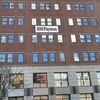Depressed loan demand and low returns chill banks' mid-year reports
Despite rocky financial waters in the markets, Maine banks seem to be holding their own. But the Federal Reserve's recent announcement that it would hold historic low interest rates into 2013 will likely continue to produce earnings challenges for Maine banks, says Chris Pinkham, president of the Maine Bankers Association.
Based on conversations with several bank CFOs and CEOs and second-quarter call reports of 23 banks, Pinkham says it appears deposits grew about 1.75% over the same period last year, but he'd be surprised if the increase in net new loans reaches 1%, given persistent low demand.
"We've got a mismatch there," he says. "Banks will continue to have a lot of cash, but without a strong loan demand, banks will have to invest it and there's not a lot of return on those investments. This will create pressure on earnings."
He says most Maine banks are well capitalized, which puts them in a position to weather the crunch, but he doesn't expect significant loan activity until the housing market revives. Complicating matters is a sustained rise in loan delinquencies in Maine, which bucks a national trend. According to a TransUnion report from mid-August, the mortgage delinquency rate nationally dropped for six consecutive quarters to 5.82%.
"A lot of people like to think delinquencies have plateaued, but they haven't," says Pinkham. "We're seeing more delinquencies and it's all related to income."
Here's a summary of earnings as of June 30 for Maine's publicly traded banks:
The First Bancorp
6-month net income change: 8%
The First Bancorp saw its net income rise more than 8% in the first half of the year due to an increase in business volume. The Damariscotta-based company reported a net income of $6.3 million for the six months ended June 30, up 8.4% from the same period in 2010, according to a press release. Total assets grew $23.9 million over the period, and though the loan portfolio dropped slightly, the company's investment portfolio increased by more than $26 million, and deposits are up $1 million.
Bar Harbor Bankshares
6-month net income change: 10.4%
Bar Harbor Bankshares' net income rose 2% in the second quarter, the parent company of Bar Harbor Bank and Trust announced recently. Net income for the quarter ended June 30 was $2.8 million, a 2.2% rise over the same quarter last year. For the first six months of the year, earnings rose 10.4% over the same period in 2010, largely due to the company's repurchase of all shares of preferred stock it issued to the U.S. Treasury in the first quarter of 2010.
Camden National Corp.
6-month net income change: 23%
Net income at Camden National Corp. rose 27% in the second quarter of 2011, the company recently reported. Net income for the parent company of Camden National Bank was $7.1 million for the quarter, a $1.5 million rise over the second quarter of 2010, according to a press release. Net income for the six months ended June 30 was $13.4 million, an increase of 23% compared to $10.9 million for the same period in 2010.
Northeast Bancorp
3-month net income change: 1,175%
Northeast Bancorp, parent of Northeast Bank in Lewiston, saw net income of $561,000 in the quarter ended June 30, a massive, 1,175% jump over the same period last year. Last quarter's income greatly outpaced June 30, 2010's net income of $43,058, according to a press release. For the six-month period ended June 30, Northeast earned $12.6 million, results that reflected a $15.4 million bargain purchase gain and $3.2 million of transaction costs related to its December merger with FHB Formation LLC, a Boston-based investment group. A six-month comparison to 2010 wasn't filed due to the restructuring.
Katahdin Bankshares Corp.
6-month net income change: -11.4%
Katahdin Bankshares Corp. in Houlton, the parent company of Katahdin Trust Co., reported an 11.4% drop in net income in the first six months of the year over the same period last year, according to its quarterly report. President and CEO Jon Prescott attributed the decline in part to regulatory changes on overdraft fees. As part of last year's financial reform act, banks are now required to get customers' permission before charging them fees for debit card and ATM overdrafts.
Carol Coultas












Comments